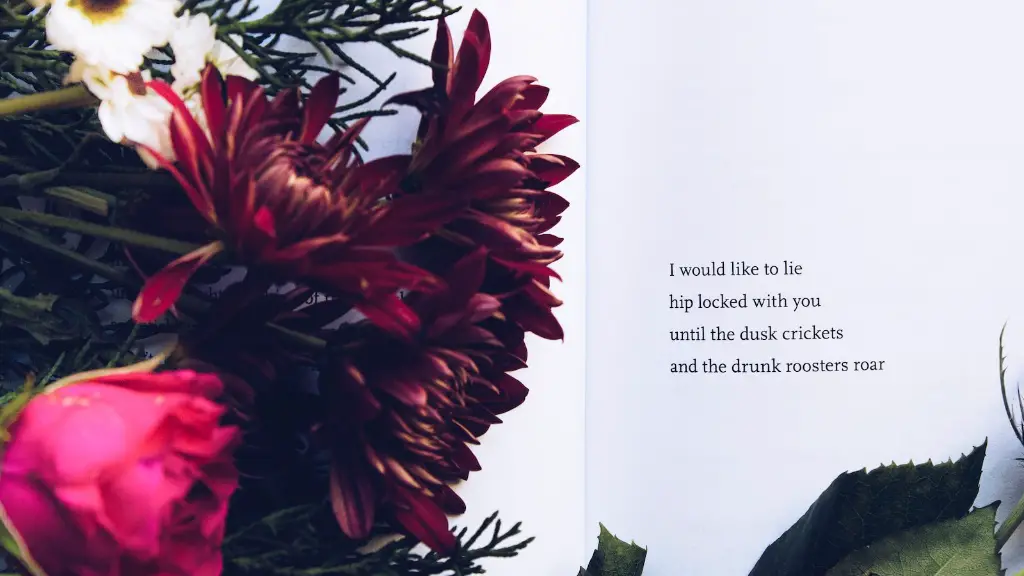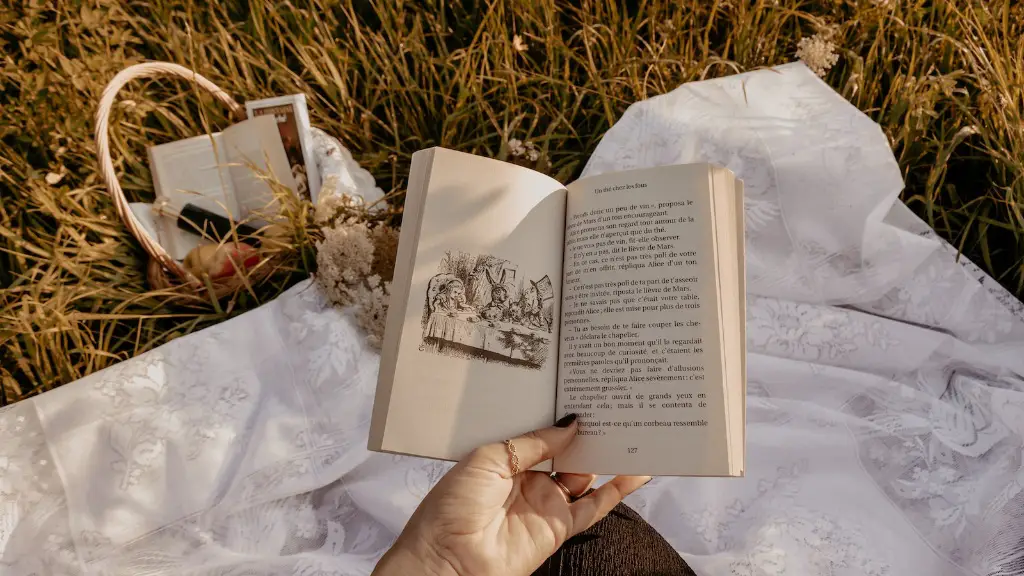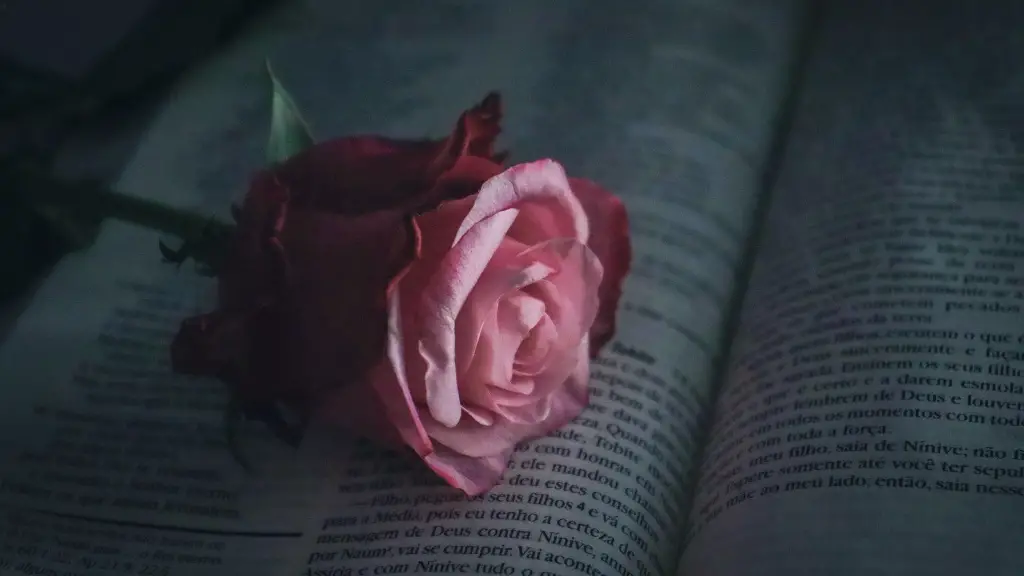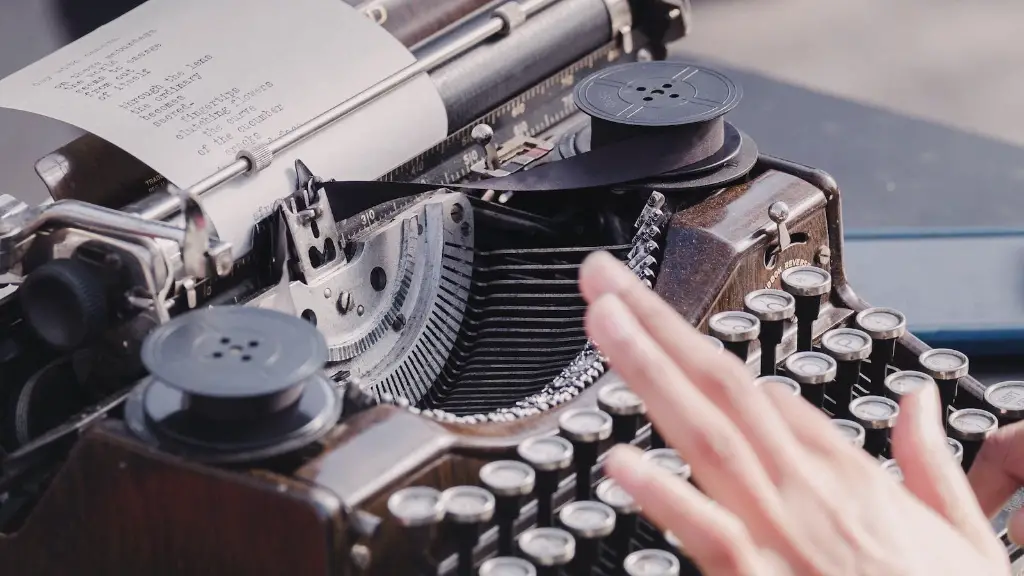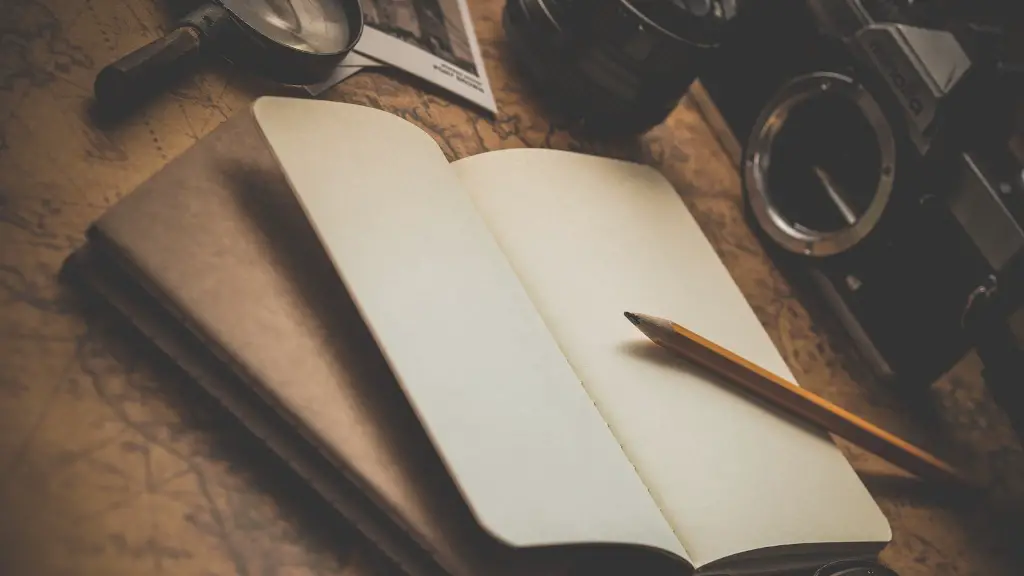An allusion is an indirect reference to something else in a work of art, including literature, film, and painting. In poetry, an allusion is a reference to a figure from literature or history, a place, an event, or a concept. Allusion can also be a reference to a mythological or religious figure, or even a different time period. Allusions are used by poets to add depth and meaning to their verses, and to make their work memorable. An allusion can be used to suggest a theme or evoke particular feelings in the reader, and can also create a connection between the poet and the reader. By understanding the references and the reference’s implications, a reader can better understand the poet’s words and the poem itself.
Allusions are typically very brief, and the poet can subtly introduce them into the poem. For example, in Tennyson’s “Ulysses,” he alludes to the Greek myth of Ulysses, and this allusion is used as a metaphor for a man’s personal journey. The poet creates a kind of self-expression in the poem, and this allusion allows the reader to relate to both the literal and the metaphorical journey of the poem. Similarly, in Whitman’s “Song of Myself,” he alludes to the Bible, Greco-Roman mythology, and other literary works to create a poem that is both personal and universal. By making these allusions, the poet is not only suggesting a theme but is also making a lasting impression on the reader.
Allusions can be used to create vivid imagery in a poem or to draw attention to particular aspects of the poem. For instance, in Frost’s “Stopping by Woods on a Snowy Evening,” he alludes to a Norse myth about a goddess of the dead, which adds a somber tone to the poem, and helps to emphasize the importance of death and mortality. Another example is in Auden’s “The Unknown Citizen,” in which he alludes to Ancient Rome, and this allusion helps to create a sense of irony and credibility to the poem. By making these allusions, the poet is able to create a vivid image that the reader can relate to.
Allusions can also be used to explore an idea or concept in a poem. For instance, in Elizabeth Bishop’s “One Art,” she alludes to the idea of repetitious behavior, and this allusion is used to explore the idea of loss and change. Similarly, in Wordsworth’s “Lines Written above Tintern Abbey,” he alludes to religion and philosophy, and this allusion is used to explore his own ideas about the nature of nature and its spiritual elements. By making these allusions, the poet is able to delve deeper into an idea, and provides a unique perspective on the concept.
In addition to the above, an allusion can be used to create a memorable moment in a poem. By making an allusion, the poet can add complexity to the poem and make it more lasting. For example, in Donne’s “Song,” he alludes to the biblical story of Adam and Eve, and this allusion is used to explore the nature of love and its consequences. Similarly, in Coleridge’s “Kubla Khan,” he alludes to Milton’s “Paradise Lost,” and this allusion is used to suggest a feeling of contentment and elation. By making these allusions, the poet is able to create powerful images and moments in the poem that the reader can connect to.
What elements does an allusion have?
An allusion typically has three distinct elements. The first element is the reference itself, which is the person, place, or thing that the poet is making the allusion to. The second is the spirit, which is the essence of the reference. The spirit is usually more abstract and can further illustrate the poem’s theme or give the reader more insight into the poet’s intentions. The third element is the effect, which is the impression that the allusion has on the poem’s audience. All of these elements are necessary for an allusion to have its desired effect.
One of the most important components of an allusion is the spirit of the reference. This element is often overlooked, but is essential for a successful allusion. The spirit of the reference should relate to the poem’s theme, and should add further insight into the poem’s meaning. By understanding the spirit of the reference, the reader can better appreciate the implications of the allusion and its impact on the poem as a whole.
In addition to the spirit of the reference, the effect of the allusion is also important. The effect is the impression that the allusion has on the reader. This can range from simply providing the reader with a few moments of clarity, to helping the reader to gain a deeper understanding of the poem’s theme. Allusions can evoke strong emotions in the reader, which can then help to create an impactful and memorable experience.
The Benefits and Pitfalls of Allusions
Allusions can be a powerful tool for poets, but they can also be misused. One of the benefits of allusions is that they can add depth and complexity to a poem, and can help to create a lasting impact on the reader. Allusions can also provide a connection between the poet and the reader, and can help to create memorable moments that stay with the reader.
However, if used incorrectly, allusions can be confusing or have unintended consequences. When making allusions, it is important for the poet to consider the context and the implications of the allusion. For instance, if a poet alludes to a historical figure or event, it is important to ensure that the allusion is appropriate and fits the context of the poem. Similarly, if the poet is alluding to a mythological figure or concept, it is important to consider what the implications of the allusion may be.
In addition to these risks, an allusion can be overused or become trite. If a poet uses too many allusions or alludes to the same figures or concepts, the poem can become tiresome or convoluted. It is important to be mindful of this when using allusions and to ensure that they serve a purpose in the poem and help to convey the poem’s message.
Examples of Allusions
Allusions are a common tool used in poetry and have been used for centuries by some of the world’s greatest poets. Some examples of allusions in poetry include John Donne’s “Song,” which alludes to the biblical story of Adam and Eve, and William Wordsworth’s “Lines Written Above Tintern Abbey,” which alludes to religion and philosophy.
Allusions are also used in other works of literature. For instance, in Ernest Hemingway’s “The Old Man and the Sea,” the protagonist Santiago makes allusions to the Christian story of Job, and in F Scott Fitzgerald’s “The Great Gatsby,” Jay Gatsby alludes to the poem “Ozymandias.” By making these allusions, the authors are able to add further insight and meaning to their works.
The Ethics of Allusion
When using allusions, it is important to be mindful of their implications and to ensure that they are used ethically. Allusions can be a powerful tool for creating memorable moments, but it is important to be aware of the potential risks that come with their use. For instance, if a poet alludes to a religious figure or event, it is important to ensure that the allusion is respectful and not offensive. It is also important to ensure that the allusion fits well with the poem’s theme and does not distract from the poem’s message.
In addition to ethical considerations, there are also legal implications to consider when using allusions. In some cases, there may be copyright or trademark issues associated with the use of an allusion, and the poet should be mindful of these implications when making an allusion. It is important to be aware of any potential legal issues that could arise with the use of an allusion, and to ensure that the allusion is used in a responsible and ethical manner.
Conclusion
Allusions can be a powerful tool for poets, and can add depth and complexity to a poem. They can also provide a connection between the poet and the reader, and can help to create memorable moments in a poem. However, it is important to be aware of the potential risks that come with the use of allusions, and to ensure that they are used ethically and responsibly. By understanding the implications of allusions, poets can use them to great effect and add more meaning to their works.
